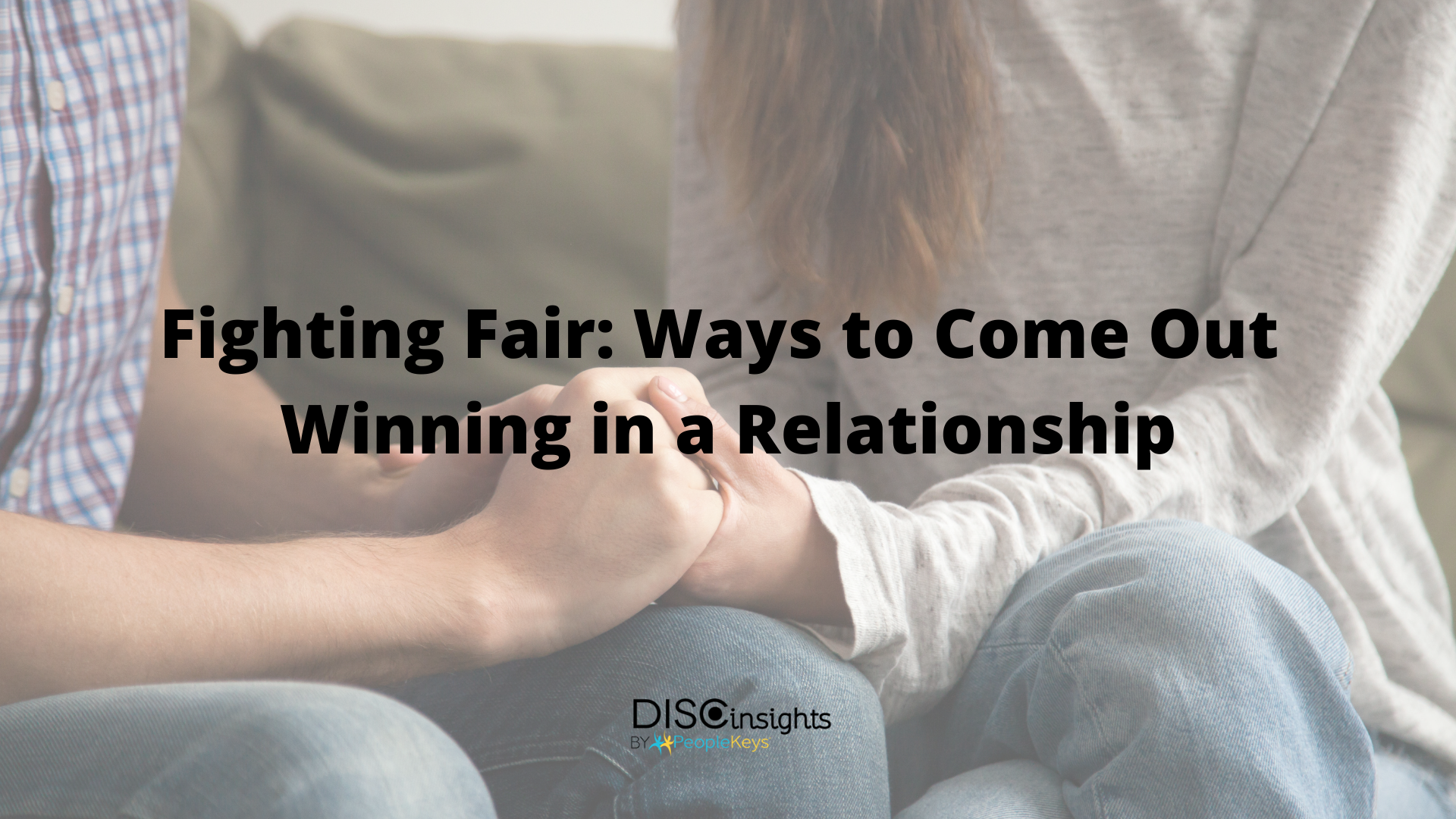- SHOP BY PRODUCT
- DISC TRAINING & CERTIFICATION TOOLS
- DISC RESOURCES
- BLOG
- SHOP BY PRODUCT
- DISC TRAINING & CERTIFICATION TOOLS
- DISC RESOURCES
- BLOG
- ALL ITEMS



It’s easy to want to win an argument when you feel you are right, even if you are wrong. Disagreements in a relationship are normal. What is not normal is feeling emotionally battered afterward.
"All is fair in love and war." Sometimes though, it takes one argument, one sentence, and one word to destroy an entire relationship. Couples need to understand that in a relationship, it is not about winning or losing. It’s about finding a solution in conflict resolution so both can come out winning.
Fighting fair can be advantageous and even transformative to a relationship. What does it mean to fight fair? According to an article published by the Counseling and Mental Health Center at The University of Texas Austin, "Fair fighting is a way to manage conflict and the feelings that come with it effectively. To fight fairly, you just need to follow some basic guidelines to help keep your disagreements from becoming entrenched or destructive."
Here are some ways you can "fight fair" regardless of your DISC style to build trust and deepen your relationship:
It can quickly turn from bad to worse by raising your voice or invading someone else's space in an argument. Ask your partner when both of you are in a healthy place about your facial expressions or how loud you are in disagreements. When you become aware of what physical gestures can trigger your partner and are committed to fighting fair, they can become obsolete in time.
Compromise should always be on the table. The goal is to find a solution that meets both of your needs. Compromise is not a sacrifice. If one person feels like they are sacrificing in a relationship, and some of their needs are not being met, they could start to feel they are taken advantage of.
When you generalize about your feelings, it can be confusing for your partner to understand the root of the problem. For example, if you're mad at your partner for not putting the dishes away when you asked him or her to, don’t state that you have a problem with them not putting the dishes away when you are actually hurt because they do not listen to you. Aim for expressing the way an action makes you feel, not of the action itself.
Remember, it’s not about who is right or wrong; it’s about how you can make a wrong a right together. Acknowledging you made a mistake can signal to your partner that you care about what they think or how they feel. It can ease the tension in the room, and communication can go from being combative or closed up to having an actual conversation.
Sometimes, when there is a miscommunication, it can be natural to assume your partner is intentionally trying not to listen or pick a fight with you. Most of the time, your partner may not even know what they did to upset you. You may think you know your spouse better than anyone, but in reality, you learn something new from each other every day. Do not assume they already knew what was bothering you.
Setting boundaries beforehand can lead to a faster resolution in a disagreement. It can also prevent someone from "hitting below the belt," meaning bringing up past traumatic events or behaviors that hurt the relationship severely. Use loving or funny code words such as honey, kisses, or watermelon. These types of words can diffuse the situation dramatically and even lead to you both coming out laughing.
Letting your guard down with your partner is imperative in a relationship. If you cannot be vulnerable with your spouse, who can you be vulnerable with? Anger is usually a secondary feeling. The first is hurt. When you express how hurt you were by a behavior, your partner will begin to let their guard down too. It’s about coming out of an argument with a better understanding of your partner.
PeopleKeys is devoted to helping couples understand one another. We believe that a healthy relationship is a happy one. We offer various DISC assessment tools to encourage you and your loved one to set boundaries and grow in a relationship. Begin the path of strengthening your relationship with your loved one by exploring our Relationship Recharge Kit together. The DISC profiles and "Body and Soul" book co-authored by Dr. Sandy Kulkin, along with a couples worksheet will guide you through a better understanding of each other.

© PeopleKeys. All Rights Reserved
WORKING DAYS/HOURS
Mon - Fri / 8:30AM - 5:00PM EST
